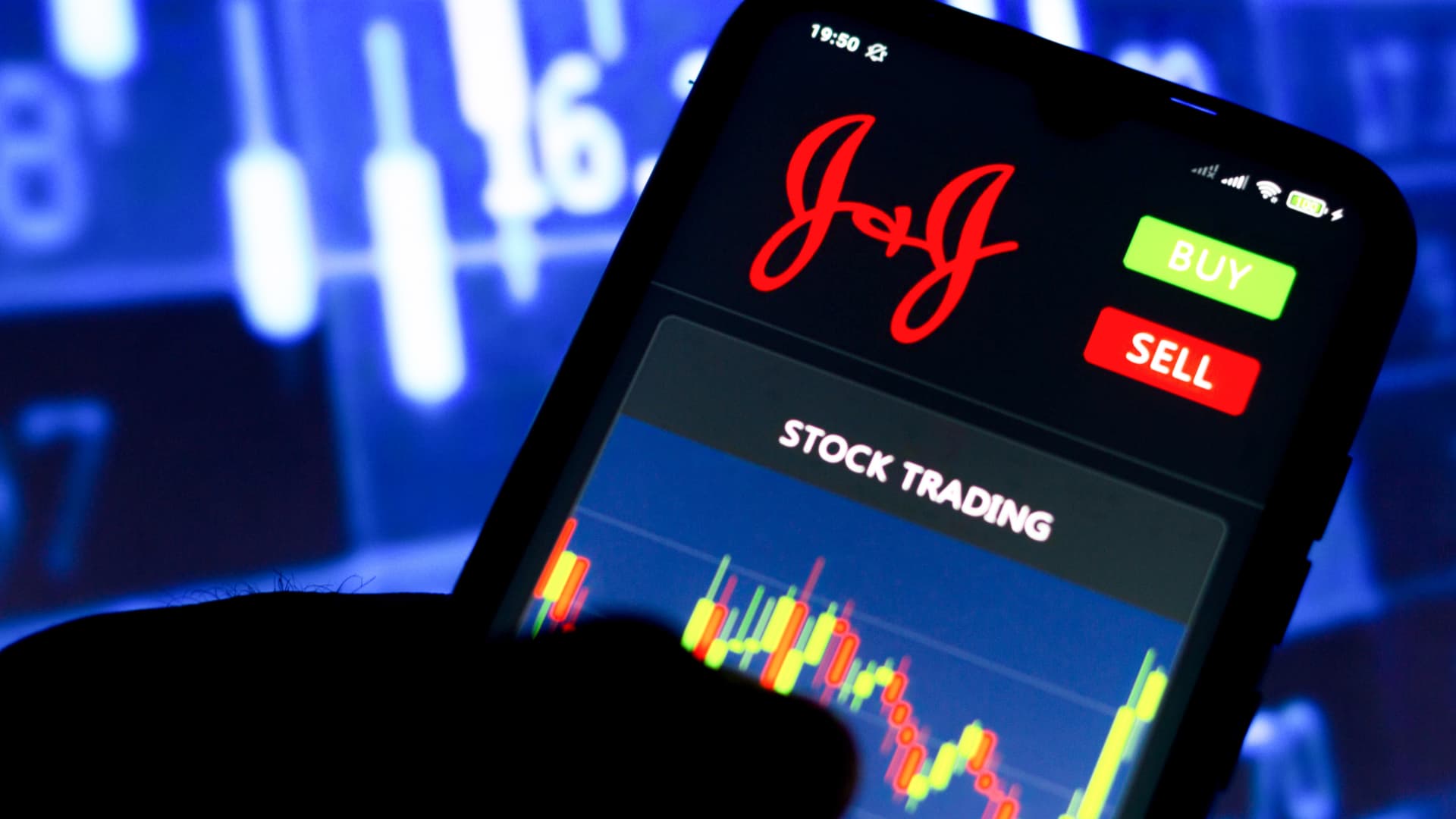Johnson & Johnson on Thursday reported second-quarter revenue and adjusted earnings that topped Wall Street’s expectations, and lifted its full-year guidance as sales from the company’s medtech business jumped.
The medtech division provides devices for surgeries, orthopedics and vision. The company is benefitting from a rebound in demand for non-urgent surgeries among older adults, who deferred those procedures during the pandemic. That increased demand has been observed by health insurers like UnitedHealth Group and Elevance Health.
Here’s how J&J results compared with Wall Street expectations, based on a survey of analysts by Refinitiv:
- Earnings per share: $2.80 adjusted, vs. $2.62 expected
- Revenue: $25.53 billion, vs. $24.62 billion expected
Shares of J&J rose about 2% in premarket trading Thursday. J&J’s stock has dropped more than 10% for the year, putting the company’s market value at roughly $412 billion.
J&J, whose financial results are considered a bellwether for the broader health sector, said its sales during the quarter grew 6.3% over the same period last year.
The pharmaceutical giant reported a net income of $5.14 billion, or $1.96 per share. That compares with a net income of $4.8 billion, or $1.80 per share, for the same period a year ago.
Excluding certain items, adjusted earnings per share were $2.80 for the period.
J&J is now forecasting full-year sales of $98.80 billion to $99.80 billion, about $1 billion higher than the guidance provided in April.
The company raised its 2023 adjusted earnings outlook to $10.70 to $10.80 per share, from a previous forecast of $10.60 to $10.70 per share.
Sales for the company’s medical devices business rose to $7.79 billion, up 12.9% from the second quarter of 2022.
J&J said growth came from electrophysiological products, which evaluate the heart’s electrical system and help doctors understand the cause of abnormal heart rhythms. Wound closure products and devices for orthopedic trauma, or serious injuries of the skeletal or muscular system, also contributed.
J&J said its acquisition of Abiomed, a cardiovascular medical technology company, in December helped fuel that growth as well.
J&J reported $13.73 billion in pharmaceutical sales, which grew more than 3% year over year. Excluding sales of its unpopular Covid vaccine, the pharmaceutical division raked in $13.45 billion.
The business is focused on developing drugs across different disease areas.
The company said the growth was driven by sales of Darzalex, a biologic for the treatment of multiple myeloma, Erleada, a prostate cancer treatment, and the blockbuster drug Stelara, which is used to treat a number of immune-mediated inflammatory diseases.
J&J will lose patent protection on Stelara later this year.
Growth was partially offset by the decline in sales of arthritis drug Remicade, which faces competition from biosimilars, or lower-cost medicines almost identical in structure.
This quarter was the first without any U.S. sales from J&J’s unpopular Covid vaccine. In April, the company said it expects no domestic revenue beyond what it reported during the first quarter because its commitments under government contracts are complete.
But the shot still brought in $285 million in international revenue.
J&J’s consumer health business spun out as an independent company under the name Kenvue in early May, partway through the quarter.
J&J continues to own nearly 90% of Kenvue shares and plans to distribute them to its shareholders later this year.
J&J said the business raked in $4.01 billion in sales for the quarter, up 5.4% from the same period a year ago.
That growth primarily came from over-the-counter products such as Tylenol, the pain reliever Motrin and upper respiratory products. Skin health and beauty products under the Neutrogena brand contributed to international sales growth.
J&J’s quarterly results come amid investor anxiety over the thousands of lawsuits claiming that the company’s talc-based products were contaminated with the carcinogen asbestos, which caused ovarian cancer and several deaths.
Those products, such as J&J’s namesake baby powder, now fall under Kenvue. But J&J will assume all talc-related liabilities that arise in the U.S. and Canada.
In April, J&J’s subsidiary LTL Management filed for bankruptcy in New Jersey, proposing to pay nearly $9 billion to settle more than 38,000 lawsuits and prevent new cases from coming forward. It’s the company’s second attempt to resolve talc claims in bankruptcy court after a federal appeals court rejected an earlier bid.
Most litigation has been halted during the bankruptcy proceedings.
J&J continues to deny the allegations and contend that its talc-based products don’t cause cancer.

